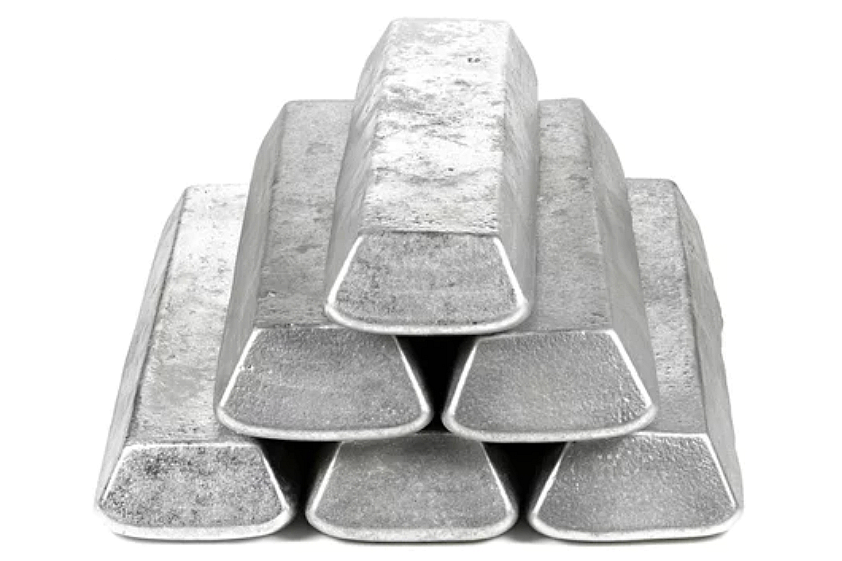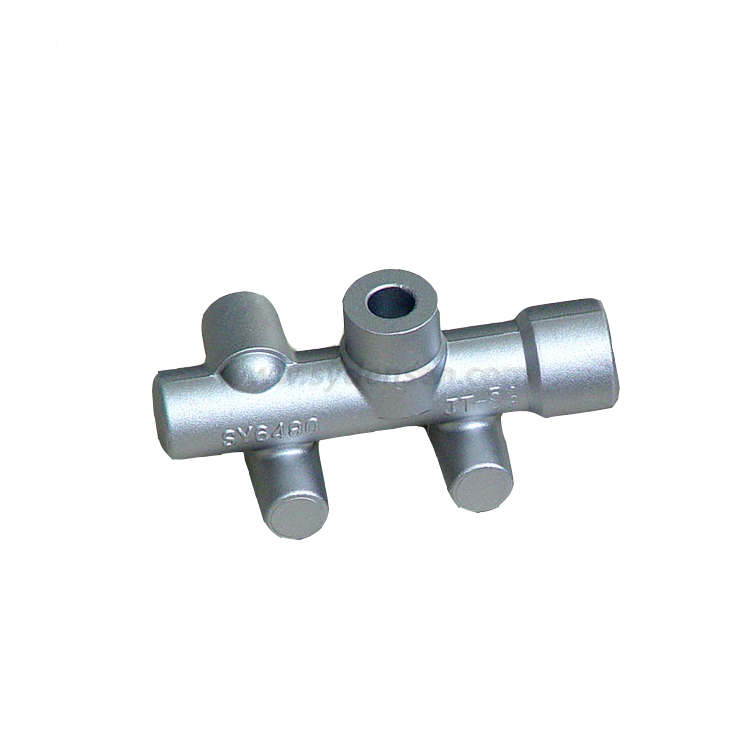Aluminum casting techniques that deliver lightweight components
Exactly How Aluminum Foundries Contribute to Various Industries: A Comprehensive Summary
Aluminum shops function as vital suppliers across several sectors, including vehicle, aerospace, building, and electronic devices. They produce elements that are not only lightweight but also resilient, enhancing the efficiency of numerous items. With sophisticated casting strategies and a commitment to sustainability, these shops are adjusting to fulfill developing market needs. As they introduce, the influence of aluminum castings on various applications elevates important inquiries regarding the future of production. What lies in advance for this vital industry?
The Duty of Light Weight Aluminum Foundries in the Automotive Sector
As the automobile sector increasingly embraces lightweight materials to boost fuel effectiveness and performance, light weight aluminum foundries play a critical function in this advancement. These facilities focus on the production of aluminum castings, which are vital components in modern vehicles. By offering high-strength, lightweight components, light weight aluminum foundries enable producers to decrease the overall weight of automobiles, ultimately causing enhanced fuel economy and decreased discharges.
Aluminum's resistance to rust additionally boosts vehicle durability, making it an appealing choice for automakers. Factories use advanced methods such as die spreading and sand casting to create specific and complex elements, making sure that they meet stringent industry standards. Furthermore, the ability to reuse light weight aluminum efficiently adds to an extra sustainable production process. As the automotive field proceeds to introduce, aluminum shops will stay pivotal in providing the products necessary for the following generation of automobiles, sustaining both efficiency and ecological goals.

Aerospace Applications of Light Weight Aluminum Castings
Light weight aluminum castings are important to the aerospace industry, providing a mix of light-weight toughness and durability that is essential for aircraft performance. These castings are made use of in different components, such as engine components, architectural frames, and landing equipment, where weight decrease is essential for fuel efficiency and overall safety. The convenience of aluminum enables complex geometries that boost wind resistant efficiency while preserving structural stability.
Furthermore, improvements in casting modern technologies have actually improved the accuracy and surface finish of aluminum elements, lowering the demand for considerable post-processing. This performance not just speeds up manufacturing timelines however additionally lowers costs, making aluminum an appealing option for producers. The corrosion resistance of light weight aluminum assurances longevity and dependability in extreme operating atmospheres, even more establishing its duty in aerospace applications. As the sector develops, aluminum spreadings proceed to be an essential material, driving development and sustaining the growth of next-generation aircraft.
Building Sector Developments With Light Weight Aluminum
The building market has significantly embraced aluminum because of its lightweight buildings and versatility, paralleling its successful applications in aerospace. Technologies in aluminum design have brought about stronger, a lot more effective frameworks, enabling architects and home builders to check out brand-new opportunities. The product's resistance to deterioration and low upkeep requires make it especially appealing for both domestic and industrial jobs.
Light weight aluminum's flexibility promotes the creation of elaborate designs, permitting visual enhancements that were previously challenging with traditional materials. Prefabrication methods have actually also developed, using light weight aluminum to reduce building and construction time and costs significantly. Furthermore, the power performance of light weight aluminum systems-- such as home window frameworks and roofing-- adds to lasting building practices, straightening with modern-day environmental requirements. As the construction sector proceeds to welcome these innovations, aluminum's function is expected to expand, driving further development and adding to the growth of durable infrastructures.
Electronic devices and the Demand for Lightweight Aluminum Components
With the fast advancement of innovation, the need for lightweight light weight aluminum components in the electronics sector has actually surged. As gadgets become a lot more compact and portable, manufacturers seek products that supply both longevity and weight decrease. Light weight aluminum, with its exceptional strength-to-weight proportion, has emerged as a recommended option for components such as housings, warmth sinks, and architectural assistances.
Making use of aluminum not just boosts item efficiency but also contributes to power effectiveness, as lighter devices call for less power during operation. Additionally, light weight aluminum's superb conductivity makes it excellent for electronic applications, guaranteeing effective heat dissipation and decreasing the danger of overheating.
As customer preferences change in the direction of sleek and light-weight gadgets, aluminum shops play an essential function in satisfying the progressing needs of the electronic devices market (Precision aluminum casting). Their capacity to generate premium and specific aluminum parts supports advancement, allowing manufacturers to push the limits of layout and capability
Sustainable Practices in Light Weight Aluminum Foundries
As the electronic devices industry increasingly focuses on sustainability, aluminum factories are adjusting their techniques to align with these ecological goals. Several foundries are carrying out reusing programs that reclaim light weight aluminum scrap, considerably lowering the demand find here for basic materials and reducing waste. By using energy-efficient innovations, these centers are reducing their carbon impact; for instance, using electric heating systems rather than typical gas-fired ones can lead to substantial energy cost savings.
Furthermore, light weight aluminum shops are spending in water conservation steps, such as closed-loop systems that reuse water my website made use of in cooling procedures. These methods not only lower water usage however likewise alleviate the environmental effect connected with wastewater discharge. Lots of foundries are checking out eco-friendly energy resources, such as solar and wind power, to satisfy their energy needs sustainably. Via these campaigns, light weight aluminum shops exhibit a commitment to environmental stewardship while remaining to fulfill the needs of the electronic devices sector.
Future Fads in Light Weight Aluminum Foundry Technologies
Emerging technologies are positioned to change aluminum foundries, boosting efficiency and item high quality while progressing sustainability initiatives. Developments such as fabricated intelligence and artificial intelligence are anticipated to maximize production procedures by anticipating equipment failures and boosting resource appropriation. The combination of advanced robotics will streamline operations, lowering labor expenses and decreasing human error.
Additive production, or 3D printing, is also acquiring traction, allowing the manufacturing of complicated geometries that were previously unattainable with typical techniques. This change could bring about significant material cost savings and reduced waste. In addition, clever shops utilizing IoT (Web of Things) innovations will certainly allow real-time monitoring and information evaluation, promoting aggressive decision-making.
The fostering of cleaner melting modern technologies and recycling techniques will further decrease the environmental impact of aluminum factories, making them more sustainable. Jointly, these patterns signal a future where light weight aluminum shops can operate with higher performance and responsibility.
Regularly Asked Questions
What Are the Ecological Impacts of Light Weight Aluminum Foundries?

Exactly How Do Foundries Make Certain Quality Assurance in Aluminum Spreading?
Foundries guarantee quality control in aluminum spreading by executing rigorous examination processes, making use of sophisticated innovation, conducting normal material screening, and adhering to sector requirements, thereby keeping consistency and integrity in their completed items. Aluminum Foundry.
What Is the Typical Lifespan of Aluminum Cast Components?
The ordinary life-span of light weight aluminum cast find out components generally varies from 10 to 50 years, depending upon variables such as environmental problems, use, and upkeep. Appropriate treatment can considerably boost their resilience and efficiency over time.
Just How Are Aluminum Alloys Selected for Details Applications?
Aluminum alloys are chosen based on elements such as stamina, rust resistance, weight, and thermal conductivity. Designers examine the certain needs of applications to determine the most appropriate alloy for finest efficiency and sturdiness.
What Are the Safety And Security Laws for Aluminum Foundry Workers?
Security policies for light weight aluminum foundry workers include personal protective equipment mandates, ventilation requirements, direct exposure limitations to harmful products, and protocols for dealing with liquified metal. Conformity warranties employee safety and reduces health and wellness threats connected with shop procedures.
As the auto sector progressively welcomes light-weight products to improve fuel efficiency and performance, light weight aluminum foundries play a vital function in this evolution. As consumer preferences shift towards smooth and lightweight gizmos, light weight aluminum shops play an essential duty in meeting the advancing demands of the electronics sector. As the electronic devices sector significantly prioritizes sustainability, aluminum shops are adjusting their methods to line up with these environmental objectives. Several shops are carrying out recycling programs that redeem light weight aluminum scrap, substantially lowering the requirement for raw materials and decreasing waste. Safety and security regulations for aluminum foundry workers include individual protective tools mandates, air flow requirements, direct exposure limitations to unsafe materials, and methods for managing molten steel.